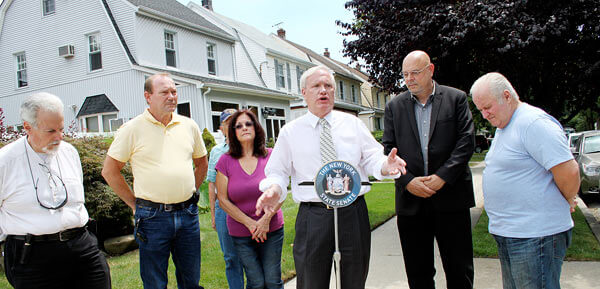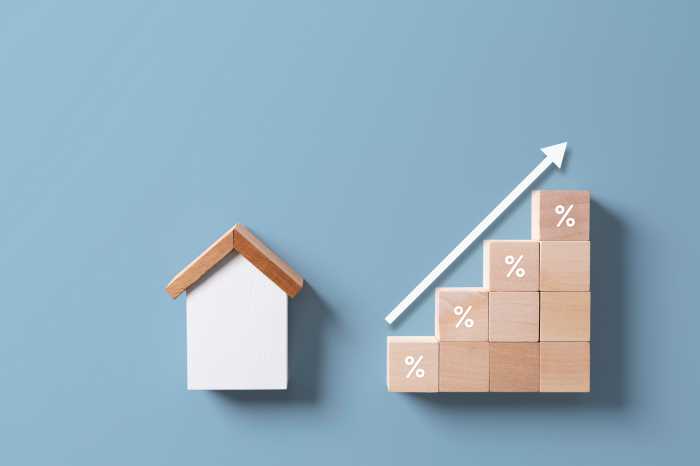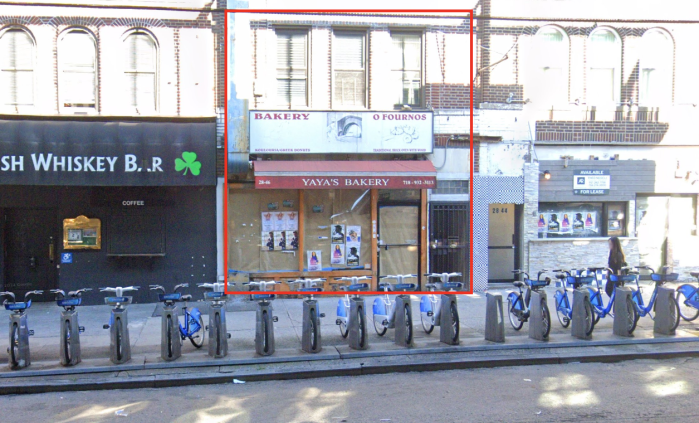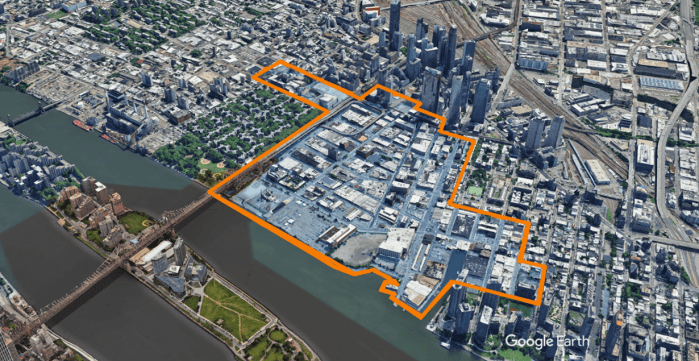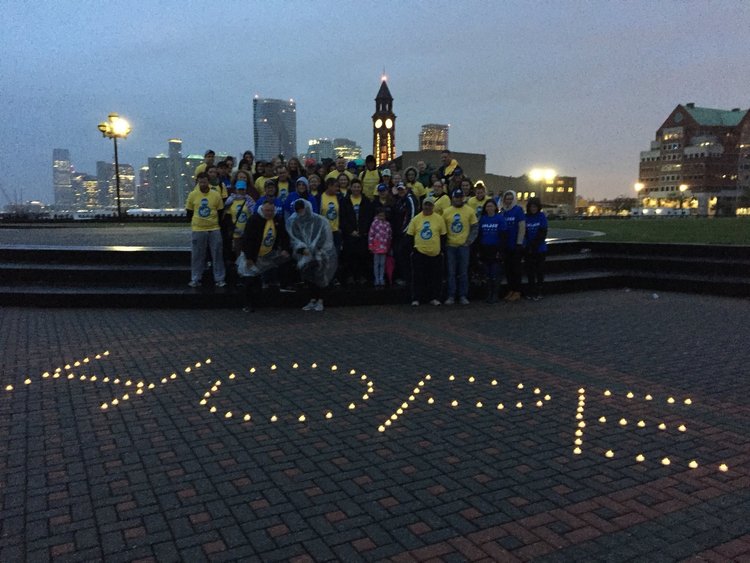By Phil Corso
A northeast Queens lawmaker took to the state Senate to fight ever-rising property taxes affecting homeowners whose properties have lost assessed value in his district and beyond.
State Sen. Tony Avella (D-Bayside) stood beside civic leaders and Bellerose residents Tuesday to promote his legislation that would temporarily bar the city from increasing property taxes on homeowners whose assessed property values decreased the previous year. The senator said the disparity was unjust and unnecessary and created a burden that everyday residents should not have to shoulder.
“I adamantly fought against property tax hikes during my tenure in the City Council, voting against two property tax increases,” Avella said. “Every year, property taxes are increased and more and more homeowners, especially seniors, are uncertain if they can afford to pay the property tax and keep a roof over their head at the same time.”
Over recent years, property owners have seen their taxes continue to rise as a result of the housing boom, said Avella, a candidate for borough president.
That all popped when the recession hit in 2008, sending property values downward despite property taxes continuing to go up.
“It makes no sense, no matter how they try to spin it or justify it,” said Bob Friedrich, president of the Glen Oaks Village co-op in northeast Queens. “What this is doing is pushing the middle class out of New York.”
Friedrich was one of several civic leaders to join the senator at the Tuesday news conference.
“City statistics show that my own home since 2008 has decreased in value approximately $200,000, yet my assessed value has increased $4,000,” said Kim Cody, president of the Greater Whitestone Taxpayers Civic Association.
A city Finance Department spokesman said instances in which homes are worth less while tax values still go up were covered by state law because of mandated caps on assessment increases. Those state-mandated caps keep property tax rates from increasing more than 6 percent in one year or 20 percent over five years, well below what the market value would indicate, the spokesman said.
“While the cap provides a tremendous benefit to homeowners over the long run, there are times when the year-to-year impact of the cap appears to run counter to changes made by finance to market value,” he said.
But Avella said it was still up to the city to put a moratorium on any property tax increases for homeowners who have only seen their property values decline as they recover from the recession. The senator recalled previous votes when he served as member of the City Council fighting against property tax hikes for city homeowners.
He was even the subject of praise in 2003 when the Queens Civic Congress recognized Avella for fighting an 18.5 percent tax increase despite Mayor Michael Bloomberg’s efforts to balance the year’s budget.
“These taxes are often increasing despite the market value decreasing because the property’s assessed value is ‘catching up’ from tax increases from previous years,” Avella said. “To pile on even more property tax increases is outrageous and unfair to property owners.”
Reach reporter Phil Corso by e-mail at pcorso@cnglocal.com or by phone at 718-260-4573.

